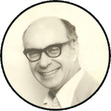Henry Toledano's Blog
May 16, 2017
The Bahamas
The Inheritance begins in the Bahamas with the main character, Jerry, working as croupier in Nassau. He doesn’t particularly like his job though the pay is good, but by no means was it good enough to get him anywhere near his aspirations. He and his mate, Richard, discuss their prospects, which don’t look good. Then … Continued
The post The Bahamas appeared first on The Inheritance.
May 15, 2017
The Bahamas
The Inheritance begins in the Bahamas with the main character, Jerry, working as croupier in Nassau. He doesn’t particularly like his job though the pay is good, but by no means was it good enough to get him anywhere near his aspirations.
He and his mate, Richard, discuss their prospects, which don’t look good. Then a stroke of luck turns up in the form of an Egyptian who has a proposal for getting Jerry’s gold coin collection out of Egypt, where it is now blocked.
The trouble is the Egyptian is an Arab and Jerry is a Jew. Anyway, to cut the story short, the Arab has a plan by which the collection can be brought out of the country. However, that demands cooperation between the two parties. The problems that ensue are the subject of the book.
I was living in the Bahamas when I wrote the book. Gambling was a hot political issue at the time, and it was featured in considerable detail in my pending book The Expatriates that will be out before the end of 2017.
The colony is an ideal setting to begin The Inheritance because it’s a colorful place with a hodgepodge of nationals eager to make fast buck, as the two heroes in the story. The Bahamas is also a financial center of sorts. Sterling can be legally transferred from the UK, but not from the US. However, American dollars are readily available because of its proximity.
The Bahamas’s main industry is tourism, with 80 percent of its inhabitants dependent on it. Nassau, with its small population, boasted nearly a hundred times more visitors to the island each year than the local inhabitants. This is where gambling comes in—an almost perfect money machine that can bring about serious consequences to its residents, like fleecing them of their hard-earned money, getting them into bad habits, affecting their home life, etc.
The Bahamian government solved this problem by making gambling illegal for residents but legal for visitors. Take the money and run! Of course, gambling does attract undesirables, but that’s a price the colony has to pay if its treasury is to be swelled with more lucre.
Buy The Inheritance now and keep your eyes and ears open for The Expatriates later in the year.
The post The Bahamas appeared first on Henry Toledano.
April 25, 2017
More Odds and Ends
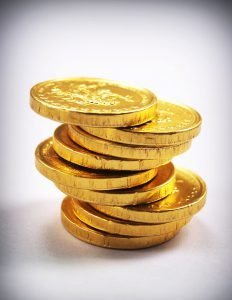
The way of life I knew as a kid in Cairo, Egypt, is now quite dead, though traces may still remain in parts of India. For instance, the Sporting Club, where our family were members, had the following facilities: three swimming pools; one good restaurant and two places where you could get snacks; about ten tennis courts, six squash courts, four or five playing fields (for soccer, cricket, hockey, and whatever); an eighteen-hole golf course, where world championships were sometimes held; a horse racing track with races, mostly on weekends; and kennels to keep members’ dogs out of mischief. There was even a playground for kids, a place for croquet, as well as rooms for cards. If I have missed anything, blame my memory. Annual membership for the whole family was ₤12 a year—a little less than $50 at the time. The Club was broken up many years ago. I think the racetrack and golf course have gone.
Cairo has always been very cosmopolitan, but during the Second World War, it was more so. Troops from all over the world were there—Australians, New Zealanders, Indians, South Africans, Rhodesians, Canadians, Americans, as well as nationals from many of the countries overrun by the Germans. It was a true melting pot. Cairo was never bombed during the war, though there were many siren warnings.
My father always tried to get me interested in his gold coin collection. He expounded learnedly on the Roman emperors—their intrigues, machinations, military victories, and often, their wicked ways. I would sit silently, bored. “Aren’t you interested in these things?” he would ask, and I wouldn’t answer. Then he would let me go. At the time, I collected stamps and enjoyed learning about countries—where they were, their capitals, about the people, their activities, what they produced (exports and imports), etc. I enjoyed the hunt for both the stamps and what they revealed. Stamps, I thought, were colorful and informative, and I had an obsession for them being well centered. Alas, the interest in stamps has plummeted and so have their values. Not so for coins, which, in many cases, have appreciated.
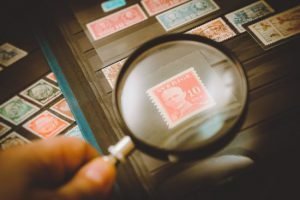
The post More Odds and Ends appeared first on Henry Toledano.
April 24, 2017
More Odds and Ends
The way of life I knew as a kid in Cairo, Egypt, is now quite dead, though traces may still remain in parts of India. For instance, the Sporting Club, where our family were members, had the following facilities: three swimming pools; one good restaurant and two places where you could get snacks; about ten … Continued
The post More Odds and Ends appeared first on The Inheritance.
April 20, 2017
The Three Bad Men

Everybody in the small town of C—— took great pride in their beautiful little opera house, for they loved opera. There were many amateur starlets in the little town but none with any real talent, so it was an important and happy occasion when famous stars from the great cities around the world came and sung at their opera house.
Now there existed three bad men in this town who were forever on the lookout for a quick and easy way of making a fortune. Up till now they had never been very successful, and they were barely able to afford the necessities that would enable them to pass as respectable citizens. One day, one of them had a bright idea: “Let us engage a French troupe to sing at our opera house,” he said. “We can hire the building and we’ll make a fortune.” He then explained his plan, and when he had finished, the others smiled and murmured in agreement.
Soon the whole town knew that a famous French troupe would be coming. People rejoiced and quickly hurried to the box office for tickets.
“Alas! All sold out,” said the little man at the office and, after a pause, whispered confidentially, “If you go round the corner there is, I think, a man who might be able to sell you tickets.”
“Thank you. Thank you,” each opera-loving person would cry and hurry around the corner to buy tickets from a little man who sold them at five times the official price!
Time passed, and the first night was approaching. Everybody was very excited. Happiness seemed to throb in the air. Husbands and wives no longer screamed at each other. Those undergoing analysis gave it up, as though miraculously cured. People who hadn’t been on the best of terms smiled and greeted each other and, in some cases, even had tea together. C—— was a happy place to live in.
Then suddenly everything changed. A tragedy hit the town. The French troupe, due to unforeseen circumstances, was unable to come. The three bad men, who were, of course, good men in the eyes of the citizens of C——, immediately reassured everybody that tickets would be refunded in full.
Everybody hurried along to the opera house to salvage whatever funds they could, and the three bad men gladly reimbursed all those with tickets, for they didn’t want to lose their respectability. And they had never expected to gross more than quadruple their money on the official price of a seat.
The post The Three Bad Men appeared first on Henry Toledano.
April 19, 2017
The Three Bad Men
(Inspired from an occurrence in Cairo.) Everybody in the small town of C—— took great pride in their beautiful little opera house, for they loved opera. There were many amateur starlets in the little town but none with any real talent, so it was an important and happy occasion when famous stars from the great … Continued
The post The Three Bad Men appeared first on The Inheritance.
January 9, 2017
Odds and Ends
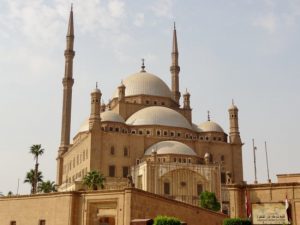
Cairo, 1978. At last I was able to withdraw my own money from the bank. I had E£2,000 on me, and I knew I had to spend it all before I left the country. I decided I’d spend some of it on presents—things reminiscent of Egypt. I went into a store that looked promising. I picked something up and asked the price. Two men were chatting in Arabic, and they looked at each other.
“How much shall we charge this sucker?” one said to the other.
I was told the price.I asked the question again, but this time in Arabic. They looked shocked and their original quote dropped 80 percent.
I was shopping with one of my aunts (a Cairo resident) who was visiting England for the first time. We passed a fruit store with a grape display among other things. She popped one in her mouth. The owner of the shop blew a fit. In Middle Eastern countries, it’s absolutely normal to taste before you buy, anyway, for small and unpacked items.
This same aunt got on a London bus and didn’t have enough change. She dug around in her bag for some coins: she only needed a penny, a very small amount even though it was a long time ago when a penny could buy something. A passenger offered to pay for her, holding the coin up in his hand. She refused. It’s polite in Egypt to say “no, thank you” to almost all first offers of anything. This is particularly the case for offers of second helpings when dining at other peoples’ homes. The passenger put his penny back in his pocket and my aunt had to get off the bus!
Another aunt, somewhat on the heavy side, wanted to cross the Champs-Élysées in Paris. The avenue is probably one of the widest in the world, and the traffic is thick. How to get to the other side? Answer: she took a taxi.
Our cook had three wives, and my mother not only had to tell him what we wanted to eat each day but now and again gives him advise as how to handle his wives.
Rich ladies in Cairo, though they might take all morning to get dressed, do spend many of their afternoons shopping. They are sometimes two or three hours with the same vendor getting her to show one item after another (blouses, sweaters, materials, etc.) until the counter is more than a foot high with merchandise. At the end of it all, they are just as likely to buy nothing. It’s what they called a busy and exhausting day!
My grandmother, in her mid-seventies, said she was very ill, on the verge of death. She wanted to be alone and in the dark—“do not disturb.” After about five hours, somebody gingerly crept into her room to see how she was. Her bed was empty. She returned home around 2:00 a.m. the next morning. She’d been playing cards.
The post Odds and Ends appeared first on Henry Toledano.
Odds and Ends
Cairo, 1978. At last I was able to withdraw my own money from the bank. I had E£2,000 on me, and I knew I had to spend it all before I left the country. I decided I’d spend some of it on presents—things reminiscent of Egypt. I went into a store that looked promising. I picked … Continued
The post Odds and Ends appeared first on The Inheritance.
January 2, 2017
The Bank Clerk
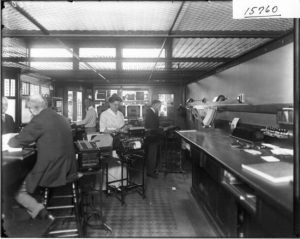
1978. My English lawyer informed me that if I go to Egypt, I’ll be allowed to withdraw E£2,000 from my account there. This,he confirmed, was corroborated by the firm’s representative in Cairo.
So, I got myself a ticket and flew to Egypt.
The day after I arrived, I went to my bank. I don’t remember whether I had an appointment or not. Anyway, I didn’t have to wait and was immediately ushered into a room on the second floor.
I recall very little of this interview. Nothing stood out about the clerk’s appearance: nondescript is probably the best description. He was pleasant enough. I don’t even recall what language we spoke in. His English was bad; my Arabic was worse. I suspect we talked in a hodgepodge of English, Arabic, and French using our hands for further clarification.
My objective was clear: I wanted to withdraw E£2,000 from my account. The money was there. I spent nearly an hour with this man. I can’t, for the life of me, remember what was said. I must have initially made a straightforward request. He probably replied that it wasn’t that easy. No doubt I’d have to fill out more forms. There’d be a waiting period for these to be examined. Maybe that would take a couple of weeks? Perhaps I’d have to answer more questions? He’d have to consult with his superiors? Or possibly we spent much of our time struggling to clarify what we were talking about?
To cut the story short, it became obvious I wasn’t going to get anything. No doubt I asked what the problem was. The law made it clear I was entitled to make a withdrawal. I said I was in the country for only two weeks. I begged. I thought of bribing him. I said I was relying on the funds to pay for my hotel, food, and more. He was very sympathetic: deep sighs, words of commiseration, promises to do his best, he understood my predicament, etc.
The next day, I met my Egyptian lawyer at the bank. All the while we chatted, he held his left hand out of the window. I couldn’t, in my wildest imagination, fathom why. Down in the street, I looked up at what I thought was his window. He was flying a kite!
A couple days later, I met my Egyptian lawyer at the bank in the manager’s office. I was given a Turkish coffee. It was dark, for there were no lights. Power failure. They chatted in Arabic. I think they were talking about their respective families. About half an hour later, we trooped up to the clerk I’d seen before.
My lawyer was introduced. We sat down. The conversation (in Arabic) turned to mutual acquaintances. My lawyer asked about the clerk’s wife and children, said he’d been to school with his brother and had seen him a few times more recently. They bantered lightly for about fifteen minutes then stood up to leave. At the door, the bank manager turned to the clerk. “Oh, by the way. You’ll give Mr. Toledano two thousand pounds.” The clerk nodded.
The post The Bank Clerk appeared first on Henry Toledano.
The Bank Clerk
My English lawyer informed me that if I go to Egypt, I’ll be allowed to withdraw E£2,000 from my account there. This,he confirmed, was corroborated by the firm’s representative in Cairo. So, I got myself a ticket and flew to Egypt. The day after I arrived, I went to my bank. I don’t remember whether … Continued
The post The Bank Clerk appeared first on The Inheritance.

